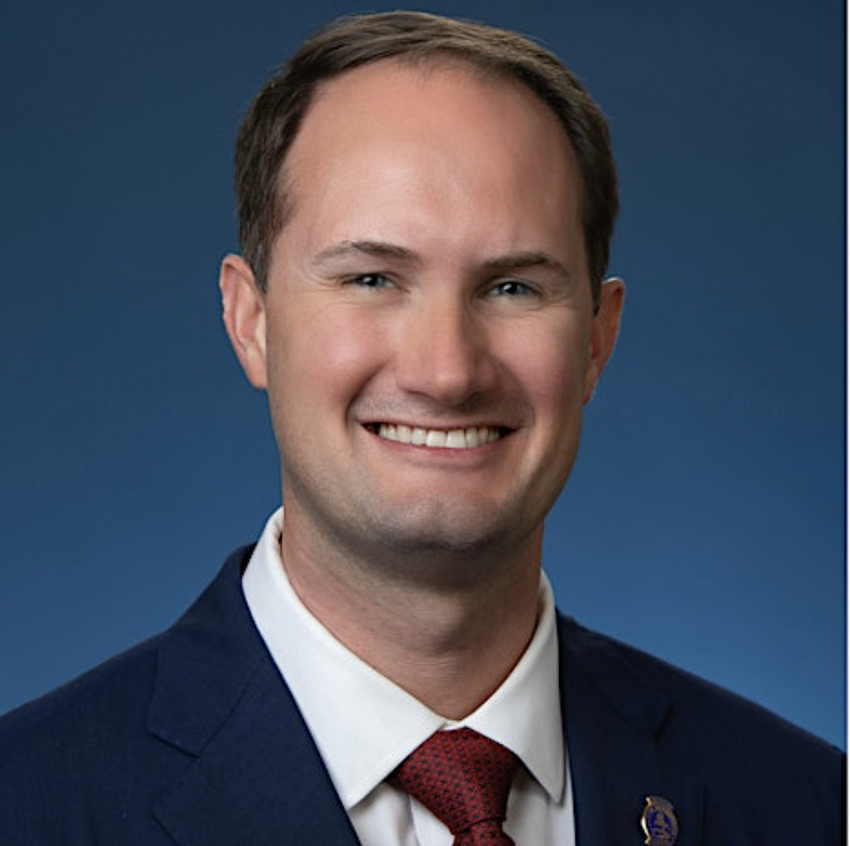
Legislation to prohibit food trucks from operating near gasoline pumps and other flammable petroleum products received final approval April 8 from the Jacksonville City Council.

Council approved the ban, contained in Ordinance 2025-0159, on a 12-7 vote.
Council member Joe Carlucci introduced the ordinance, calling it a public safety measure designed to prevent fires in the propane-powered cooking equipment in food trucks from igniting fuel.
He said he was prompted to take action after receiving calls from constituents who were concerned after seeing food trucks operating near gas pumps at convenience stores.
Member Ken Amaro said that although the ordinance’s opponents had twisted its intent by describing it as an “anti-food truck bill,” its true aim was different.
“This measure says we don’t want create an environment where someone is using open flame, then something just happens and the next thing you know the gas station is on fire, the food truck is on fire and lives are lost,” he said.
Several Council members said the bill would restrict small-business operators without clear evidence of a substantial safety risk.
Reggie Gaffney Jr. said he could not support the measure because he could find no incidents of serious food truck fires in his District 8 over the last five to 10 years.
Council member Rahman Johnson said his research on the issue showed that it was a remote possibility for a food truck to set off a fuel pump. He said there were numerous other ignition sources, including cars and trucks, and questioned why it was necessary to restrict food trucks.
“Static electricity could cause combustibility, but we don’t see people banning sweaters at gas stations, do we?” he said.
No food truck fire data
The National Fire Protection Association says that anecdotes and news reports about fires and explosions in food trucks have become more common as the trucks have grown in popularity in recent years.
However, the association says no data exists specifically on food truck fires, as some are classified as vehicle fires and some as restaurant fires.
The cooking areas in food trucks generally are powered by propane tanks, which can pose a fire risk due to leaks in valves and lines. In addition to faulty propane systems, fires can break out due to such issues as clogged grease traps, malfunctioning electrical systems and improper use of cooking equipment.

Council member Raul Arias, a restaurateur, said the ordinance would not prohibit all food trucks from operating at gas stations, but merely those in which food was prepared over open flames. He said other kinds of trucks selling premade sandwiches, catered food, ice cream and other products could operate.
The bill originally barred trucks from being on property where fuels were sold, but was amended during the committee process to prohibit operations within 300 feet of a fuel tank or another type of flammable petroleum product.
'Food truck freedom' legislation
In 2020, the Florida Legislature approved restricting local governments from imposing licensing, registration, permitting and fees for food truck operations. The so-called “food truck freedom” legislation was in response to a lawsuit filed by food truck owners against the city of Fort Pierce alleging that its restrictions were excessive.
The legislation allows local governments to impose restrictions on food trucks via zoning codes, which is where the prohibition in Carlucci’s ordinance will be added.

Council member Ju’Coby Pittman, president and CEO of the Clara White Mission, said the ordinance would hinder truck operators from doing business and, in turn, would reduce opportunities for individuals to obtain jobs in the food business. She said she had worked with 56 people who had graduated from the mission’s culinary program but could not receive work in restaurants because of their backgrounds and instead landed their first jobs in food trucks.
Citing a communication with Jacksonville Fire Chief Keith Powers, Council member Chris Miller said he believed the safety issue should be addressed “in a more holistic manner” starting with collaboration between the Jacksonville Fire and Rescue Department, city code compliance officials and the Neighborhoods Department.
Miller said he was concerned that the ordinance would restrict food truck operators from gas stations, but also locations like The Home Depot and Costco stores where propane tanks are stored.
Yes votes on the bill came from Council President Randy White, Vice President Kevin Carrico and members Amaro, Arias, Joe Carlucci, Matt Carlucci, Terrance Freeman, Nick Howland, Mike Gay, Will Lahnen, Jimmy Peluso and Ron Salem.
No votes were from members Michael Boylan, Tyrona Clark-Murray, Rory Diamond, Pittman, Gaffney, Johnson and Miller.